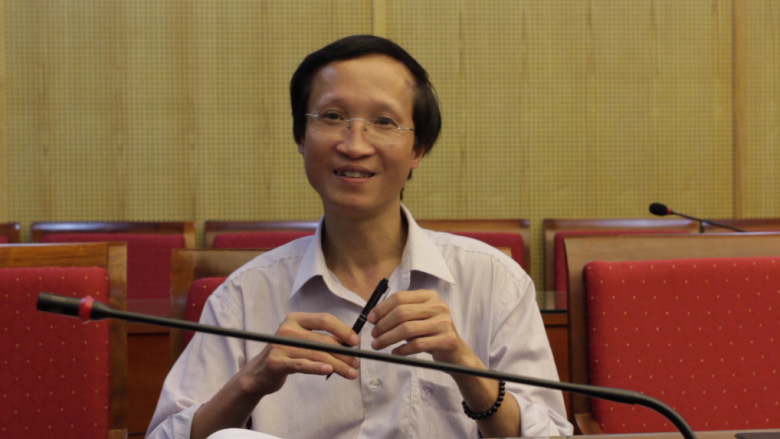It’s visible in the masks that motorcyclists wear on their faces to protect their lungs, on the energy efficiency stickers on consumer goods, and in a host of new government laws and regulations: there is growing concern in Vietnam about the cost of environmental degradation -- and conscious efforts, on many levels, to protect people’s wellbeing and make growth more green and climate resilient.
While rapid growth in Vietnam drastically reduced poverty from 49.2 percent in 1993 to 3.2 percent in 2012, it also put increasing pressure on the country’s natural resources. Air pollution levels rose in Hanoi and Ho Chi Minh City, rivers became more polluted, greenhouse gas emissions almost tripled between 2000 and 2010, and climate change and environmental degradation in rural and coastal areas began to threaten the livelihoods of farmers and fishers. Recognizing the severity of these multiple challenges, the government of Vietnam promoted the concept of green growth in 2012, to restructure its economy, put it on a more sustainable footing and further reduce poverty. It has just ratified the Paris Agreement and detailed a Plan of Implementation to help tackle climate change by committing to curb greenhouse gas emissions.
The World Bank Group has been a critical partner in Vietnam’s efforts, by mobilizing resources, offering technical assistance and supporting policy change. In the year since the climate change agreement was reached in Paris in December 2015, important steps have been taken:
- In June, the World Bank approved the first US$90 million Development Policy Financing of a proposed series of three operations to support a range of green growth and climate change related policy reforms – ranging from improving the way coastal zones and forests are managed and water used to increase climate resilience and promote greener growth, to changing transportation and industry norms to improve air quality, and promoting cleaner and more resource efficient production systems as well as renewable energy measures that reduce greenhouse gas emissions.
- This was complemented by the Mekong Delta Integrated Climate Resilience and Sustainable Livelihoods investment program, a US$310 million operation approved in June that will help farmers and fishers in different vulnerable sub-regions of the delta by enhancing flood retention in the upper delta, financing climate-resilient infrastructure and helping adapt livelihoods to salinity intrusion and coastal erosion.
- The World Bank is also supporting an integrated effort to steer the power sector toward lower carbon options. This includes the preparation of a Vietnam Energy Efficiency for Industrial Enterprises Project that aims to facilitate energy efficiency investments in industrial sectors, and support for the development of a national roadmap to put on line 12 GW of solar energy by 2030.
- Operational technical grants from the Korea Green Growth Trust Fund (KGGTF) have focused in recent years on issues such as energy efficiency in the cities of Da Nang and Surabaya, solar development, overall green growth policy priorities, and the eco-industrial sector. In particular, KGGTF working through the IFC, helped the Vietnamese government leverage Korean expertise in Eco-Industrial Parks, to go beyond pollution abatement while targeting growth by identifying symbioses between industries.
- With support from PPIAF, the World Bank is providing technical assistance to improve the efficiency and climate resilience of the railway sector. Rail transport, which currently carries less than 3 percent of Vietnam’s total cargo and passengers, has the potential to play a significant role in addressing climate change, by generating less carbon per ton or per passenger than road transport.
- Following the drought and saltwater intrusion crisis of 2015/16 the World Bank issued a policy note on integrated disaster risk management that highlighted opportunities to increase resilience in the face of growing climate risks and better protect Vietnam’s socio-economic development gains against similar shocks.
A hallmark of these projects and programs is the increasing willingness to embrace complexity in area-based approaches, apply global knowledge to the Vietnamese context, and work across sectors to achieve better outcomes.
“How Vietnam handles the transition to greener growth and the impacts of climate change will be a determining factor for its ability to meet Vietnamese people’s increasing quality of life demands. Financing the climate change and green growth agenda and putting the right policies and regulations in place are an important part of the World Bank Group contribution to Vietnam’s climate-smart trajectory,” said Ousmane Dione, World Bank Country Director for Vietnam. “We’re committed to working with the government to strengthen climate change adaptation and mitigation in this country.”
The shift toward greener growth will take time, awareness raising and significant resources, according to Dr Pham Hoang Mai, Director General of the Department of Science Education, Natural Resources and Environment, at the Ministry of Planning and Investment (MPI).

